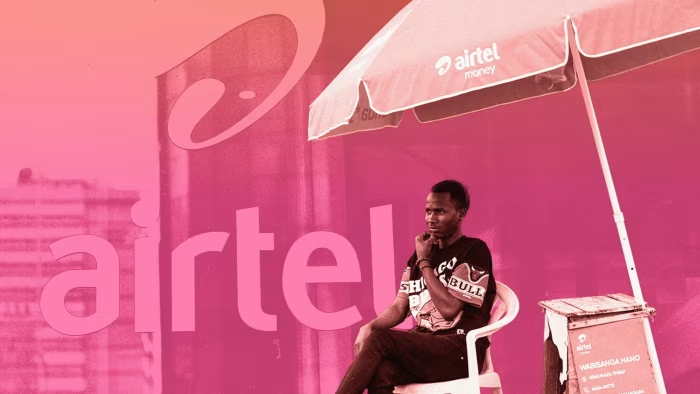Scale matters for telecoms companies. Competitive pricing and heavy spending on network infrastructure means tight margins, and London’s big three telecoms companies, BT, Vodafone and Airtel Africa, all face the same pressure to build vast customer bases.
Partly for historical reasons, and with a fixed-line infrastructure to manage and develop, BT’s focus has largely remained on its home market. In recent years it has invested billions rolling out new-generation fibre broadband, a project that is finally nearing completion.
Its mobile-focused rival Vodafone, however, has never been tied down by any such obligations and has instead channelled its energy into international expansion. This strategy has left it with a strong presence in Europe and Africa, where it first established a presence around three decades ago.
Africa has since become a key engine of growth, delivering 20 per cent of Vodafone’s group revenues. The company is one of the continent’s largest telecommunications providers, along with rival Airtel Africa. It has the edge on Vodafone in Africa with customer numbers there approaching 170mn.
Both Vodafone and Airtel have followed the demographics. Africa has a young, growing population and a relatively under-developed internet infrastructure that means a high reliance on smartphones and soaring demand for data and phone-based payment services.
These latter two segments in particular represent promising areas of growth and both businesses offer mobile based payment platforms enabling secure financial transactions by phone. Vodafone’s money transfer business accounts for almost 30 per cent of its African revenues and is growing fast.
Airtel’s mobile money platform is also a high-growth, high-margin division. So much so that management, which holds the majority of the shares, intends to float it as a standalone company. But investors should note that without the mobile money business, Airtel Africa’s revenue growth is likely to slow considerably.
HOLD: Airtel Africa (AAF)
The market responded positively to Airtel Africa’s half-year figures, which detailed a surge in net profits, up from $79mn (£59.4mn) to $376mn, writes Mark Robinson.
The Africa-focused telecoms group revealed that the planned IPO of its Airtel Money unit remains on track for the first half of next year.
Airtel saw growth in its customer base across all segments, with an overall increase equivalent to 11 per cent. Mobile services revenue grew by 23.1 per cent in constant currency.
Cost efficiency savings contributed to a one-third increase in cash profits to $1.45bn and an accompanying 30 basis point increase in the underlying margin to 48.5 per cent.
Citi gives an enterprise value/ebitda ratio of 5.5 times, falling to 4.6 times in 2027.
Beyond the solid financials, Airtel marked a year of strong operational progress, as evidenced by expanding fibre infrastructure and 5G capabilities. The group’s forward rating is undemanding relative to peers, but the hefty debt pile, questions over the Airtel Money spin-off and a limited free float keep us on the sidelines.
BUY: C&C Group (CCR)
C&C Group joined the ranks of consumer goods companies that have flagged a difficult market backdrop on interim results day, writes Erin Withey.
While revenues at the Dublin-based company dropped slightly, the owner of the Tennents lager and Magners cider brands reported an otherwise resilient set of half-year numbers, having managed to reduce operating costs by €43mn (£37.7mn) for the period.
The board reaffirmed its intention to distribute €150mn to shareholders through dividends and buybacks by 2027. The company also announced that a further €15mn share buyback programme was completed in September. This was underpinned by strong free cash flow, which showed a marked improvement from €12mn at the previous half-year to €35mn.
The shares are trading on 12.5 times forward earnings according to FactSet, which presents a slight discount to the group’s historic five-year average. With good cash conversion and a solid grip on cost discipline, we are cautiously optimistic about long-term prospects.

HOLD: Ultimate Products (ULTP)
The housewares group behind Salter is battling weaker sales, writes Valeria Martinez.
Ultimate Products has cut its dividend by half after profits fell sharply, hit by slower sales from the end of the air fryer boom. The maker of Salter kitchenware and Beldray home appliances said adjusted ebitda declined by 31 per cent to £13mn in the year to July 31, as margins were squeezed by higher shipping and labour costs and a shift in sales mix.
Revenue fell 3 per cent to £150mn, with the air fryer category down 32 per cent. Core branded sales have barely grown, edging from £110mn to £112mn over the past three years. Management is focusing on building brand equity, with its own labels making up 81 per cent of total revenue. Excluding air fryers and clearance sales, turnover rose 6 per cent and international sales jumped 20 per cent.
The shares have more than halved over the past year and now trade at just 7.8 times earnings, below their five-year average. A commitment to own-brand sales should be positive in the long term, but with no near-term catalyst for a consumer rebound, the shares look fairly priced.

